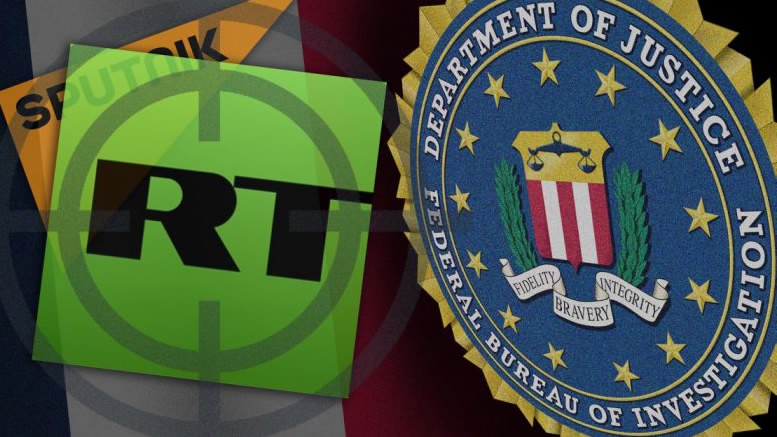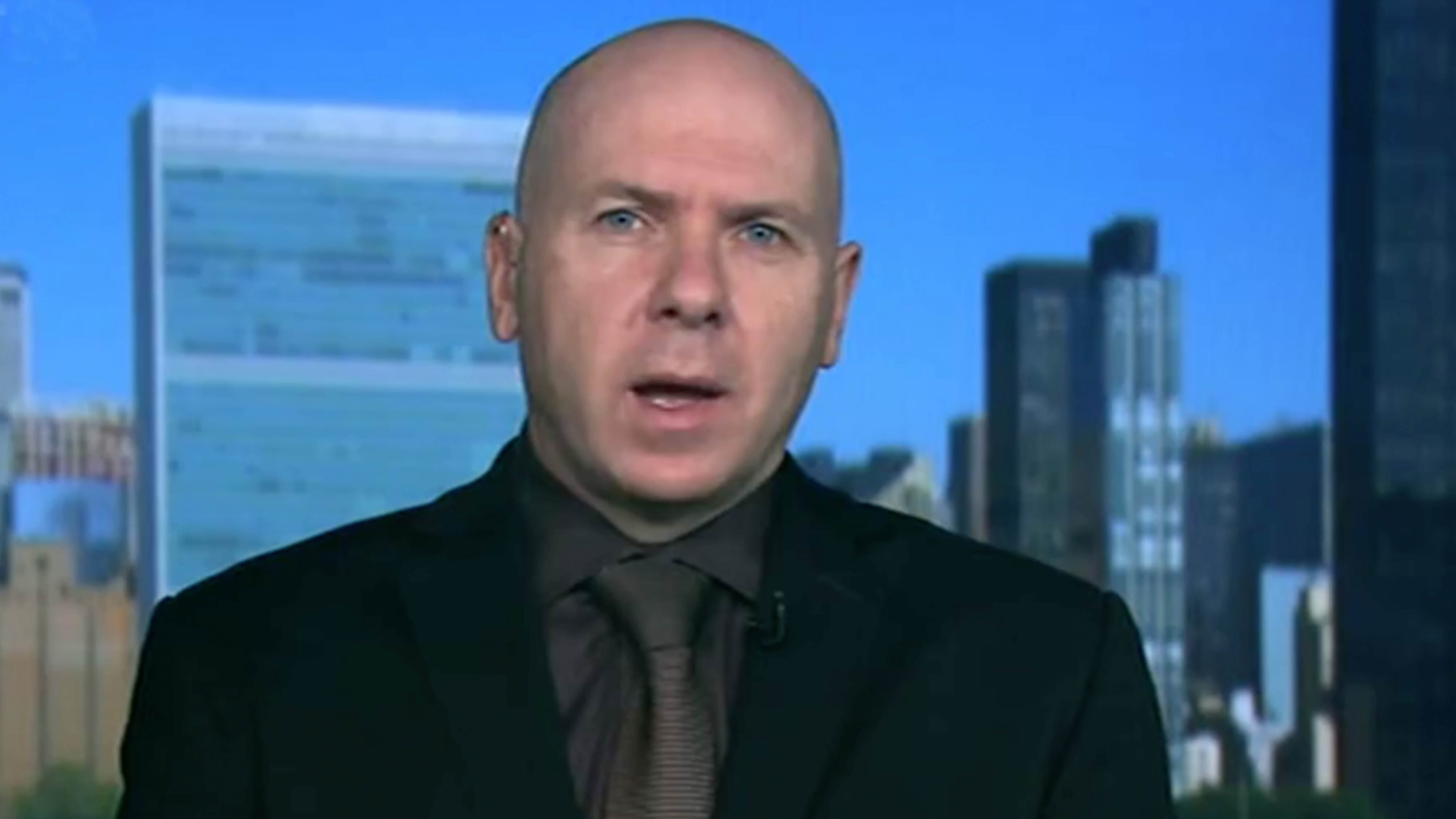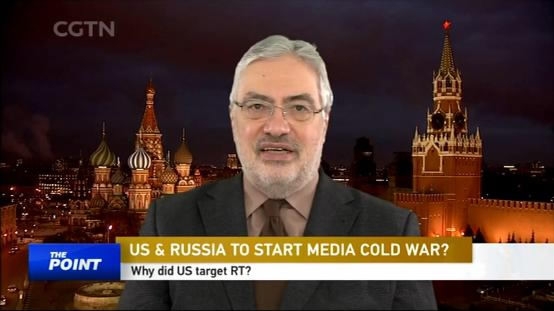
World
17:09, 22-Nov-2017
Tit-for-tat in US-Russia media war
CGTN

By CGTN's The Point
“When the news about RT came out, I think most people just kind of shrugged; they didn’t really see it as a big issue one way or another. If it was eventually proven that RT had played a role in electoral interference in the United States of America, I think that would be a game changer in terms of the ways people see these moves,” said Simon Adams, Executive Director at the Global Centre for the Responsibility to Protect.
Adams’s remarks on CGTN’s The Point came following speculation about the role Russia played in meddling in the US presidential elections.
For months Washington has accused Moscow of having interfered in last year’s race which saw Donald Trump elected president.

Simon Adams, Executive Director at the Global Centre for the Responsibility to Protect. /CGTN Photo
Simon Adams, Executive Director at the Global Centre for the Responsibility to Protect. /CGTN Photo
Broadcaster RT is among the organizations suspected of working on behalf of Moscow in its alleged support of the Republican Party and its candidate Trump.
RT staff based in the US were recently obliged to register foreign agents following a Justice Department mandate.
Adams pointed out that, “It’s symbolic. I think the American authorities wanted to point out that they don’t see RT, Sputnik as real news organizations; they see them essentially as propaganda outlets.”
But he thinks it’s a clumsy move.
“RT has a tiny share of the American market. The number of people who actually watch RT in the United States is very, very small. People are voting if not with their feet than with their remote controls, simply switching to other channels. I certainly believe in the diversity of the media. I think the purpose of it was to brand them in a particular way.”

Russia responded with a “symmetrical answer” in the developing media battle. Russia's Justice Ministry said last Thursday that it had warned several US news outlets that they could be designated as foreign agents under new legislation which has yet to be fully approved by the upper house and signed into law by President Vladimir Putin.
“This legislation was drafted very swiftly. Human rights activists in Russia say that this is not fully thought through. Any kind of foreign news outlets or even Chinese CCTV could be declared under this legislation, but they most likely won’t,” said Pavel Felgenhauer, a Russian political and defense analyst.
“Russia is called a mirror reflection to the Americans, but nothing further than that is really fully understood.”
Felgenhauer thinks allegations of Russian interference in the US presidential election is “questionable.”

Pavel Felgenhauer, a Russian Political & Defense Analyst. /CGTN Photo
Pavel Felgenhauer, a Russian Political & Defense Analyst. /CGTN Photo
He also argues that, “Russia is going to have its presidential election next March and now the Russian authorities will take actions to quell any kind of Western influence in our election. This legislation is most likely the beginning, there will be other legislations to put more pressure on any kind of people who are seen as any way connected to the West.”
“It’s a downward spiral for both sides, and it’s going to make the relations between Russia and America, Russia and the West much more complicated than before,” he said.
The Point with Liu Xin is a 30-minute current affairs program on CGTN. It airs weekdays at 9.30 p.m. BJT (1330GMT), with rebroadcasts at 5.30 a.m. (2130GMT) and 10.30 a.m. (0230GMT).
5800km

SITEMAP
Copyright © 2018 CGTN. Beijing ICP prepared NO.16065310-3
Copyright © 2018 CGTN. Beijing ICP prepared NO.16065310-3